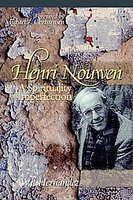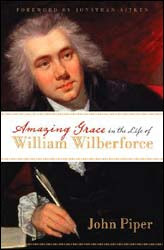

Last night I visited with the fellowship group of our friend, Vickie. She offers wise and good leadership to a singles ministry (of various ages) at a local church. Her group, with the cool name, SoulPurpose, asked me to speak about responding to the call of God, the spirituality of surrender to God’s grace. Later, I will meet with them to do a series on faith lived in the workworld, the vision of vocation, and the integration of our commitments to Christ’s reign and transforming ways, with our daily grind of (so-called) secular occupations. For now, though, they are working their way through the extraordinary Surrender to Love, the wonderful first book of David Benner’s small spiritual formation triology published by InterVarsity Press.
They didn’t just ask me to talk about calling and vocation, about seeking God’s will, about yielding our lives to God. That would be plenty, but they’ve had excellent speakers, already. I was invited to consider the ways in which a few saints have actually done this. As poet-farmer Wendell Berry has warned, “abstraction” finally isn’t helpful, so we need examples, models and ways to actually live into this whole Soul Purpose thing.
I compared and contrasted the journey and spirituality of two men I greatly admire, one who has effected me by his writing, the other, more by his legendary life, Henri Nouwen and William Wilberforce. I had at my disposal, of course, here in the shop, numerous books by and about both of them. I hadn’t really worked through any of the several good biographies of Nouwen and really enjoyed doing that in preparation. I more than enjoyed it, I found it deeply, deeply moving, being reminded of his hard journey, his pain and anxiety, his insecurities and desires. It is well known that Nouwen talked openly about many of his fears and his longing to know God so well as to find healing and wholeness, making him a “wounded healer” who has moved towards greater authenticity and hospitality. I suggested, as I read excerpts of Henri’s journals and books, that his surrender, his vocation, the focus of his particular spirituality was less on what he did, but mostly on who he was. His gift was to be, to teach us all about the inner journey and the call to love. (Not unlike John Calvin, Nouwen regularly related the knowledge of God and the knowledge of self.)
Wilberforce, about whom I will soon write in my monthly website column, will be someone we will be hearing more about with the February release of the amazing film, Amazing Grace. I trust you know about Wilberforce’s “great change” (as he called his evangelical conversion) and how the writer of the song, Amazing Grace (John Newton) influenced him not only to grow in love for Christ and a submission to the central truths of orthodox conviction, but to work year upon year for the abolition of slavery in England. What a momentous influence Newton had upon this young and influential parlimentarian, who has come to be known as the world’s greatest social reformer. And what a life of struggle, faith, trust, philantrophy, suffering and activism Wilberforce lived! As John Piper tells us, in his excellent new (if very brief) book, Amazing Grace in the Life of William Wilberforce, it was a life of hardship and yet obvious joy; he was known for his humor and pleasant demeanor and insisted that service to God is a matter of immense joy. His response to God’s call, like Nouwen’s, was intimate and deep, but, more than Nouwen, he left his mark in the history-making things he accomplished in his public career.
Two styles of response, one known more for being, one for doing. Both were engaged in public issues, significant outreach and regularly showed their compassion for the less powerful, children, the needy. Both made room for guests and seekers and friends galore. Both had a ministry of correspondance, and both were known by some of the finest artists and philosophers of their day. Still, Nouwen’s legacy is as the gentle contemplative who teaches us about the nature of our deepest inner issues, even as they spill over into peacemaking, servanthood and “downward mobility.” Wilberforce, along with his Clapham community, reminds us to “think Christianly” and strategically work for political and cultural reforms that are rooted in the clarion call of the gospel. I enjoyed refreshing myself by studying these two titans. I hope you have such influences, know such books, have written resources around you like the writings of these men (or the books they so often cited) to draw upon when you have a sabbath hour to ponder such things.
Hearts & Minds Books
More than a bookstore
